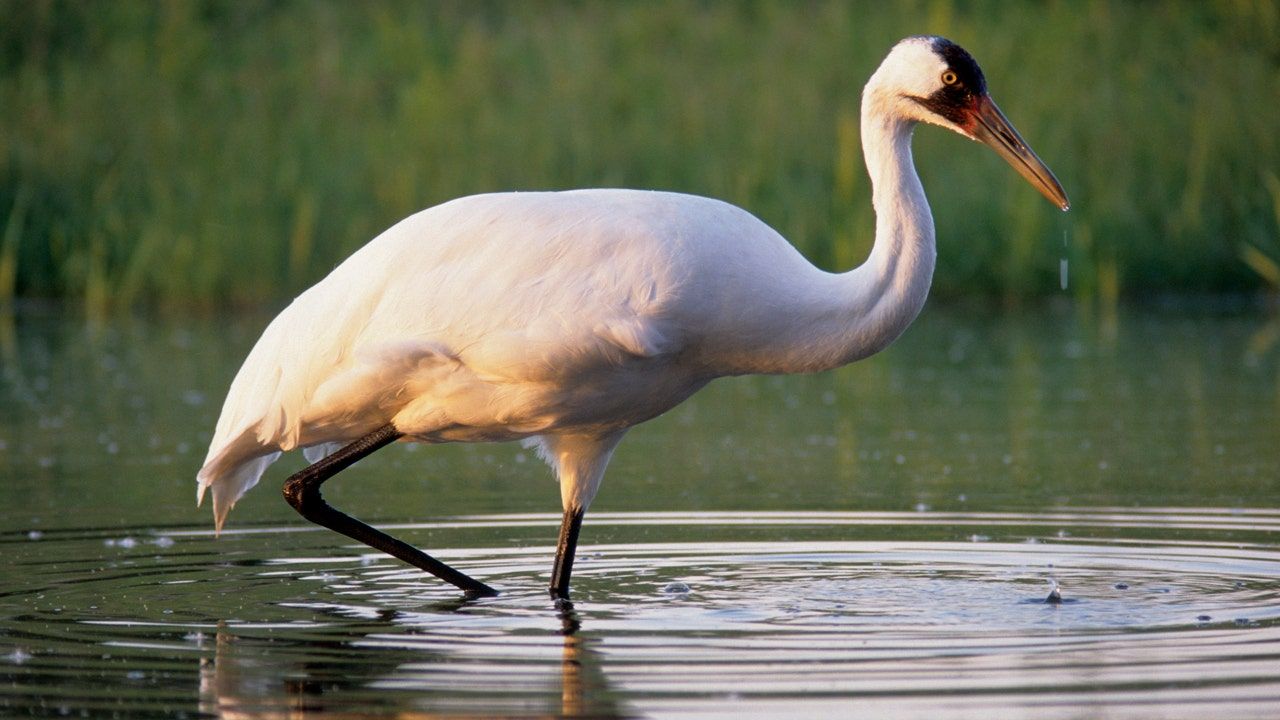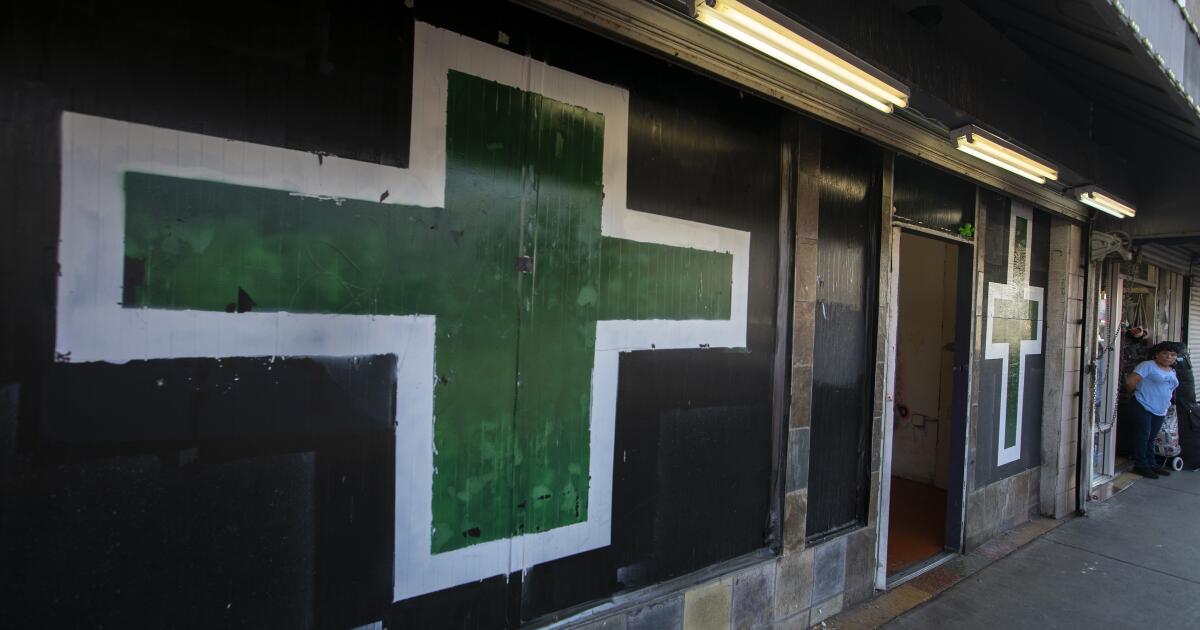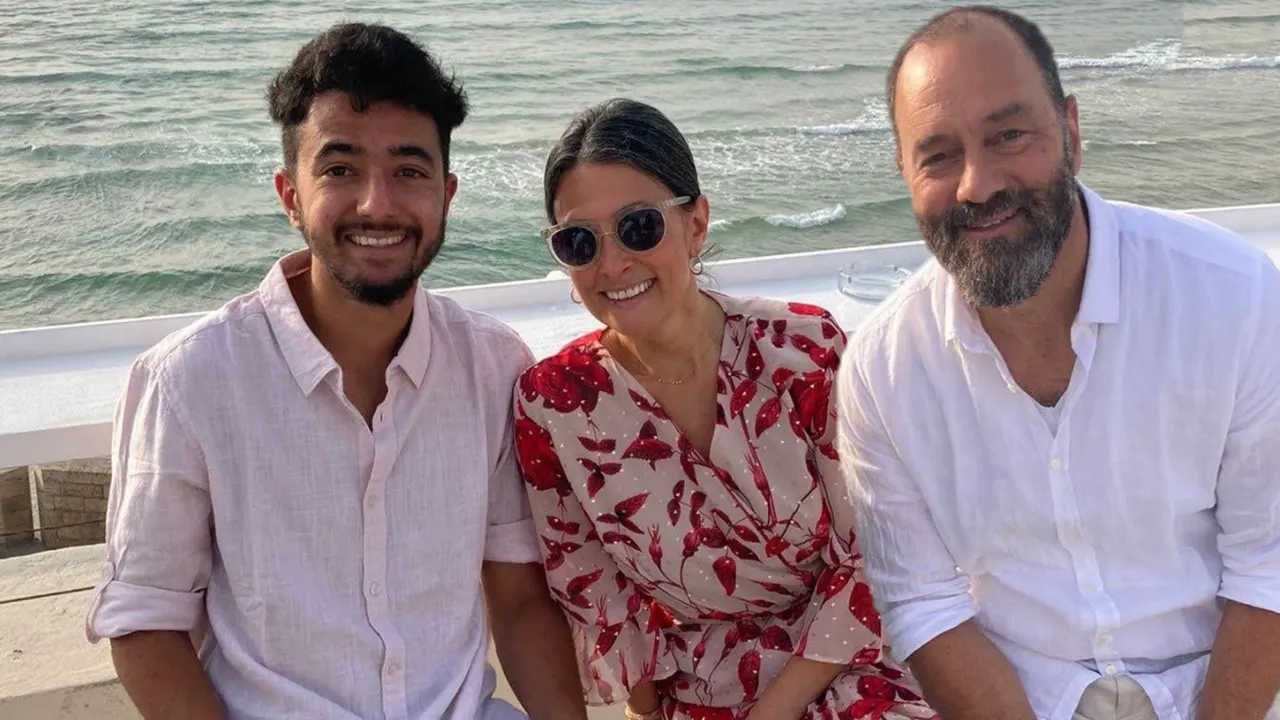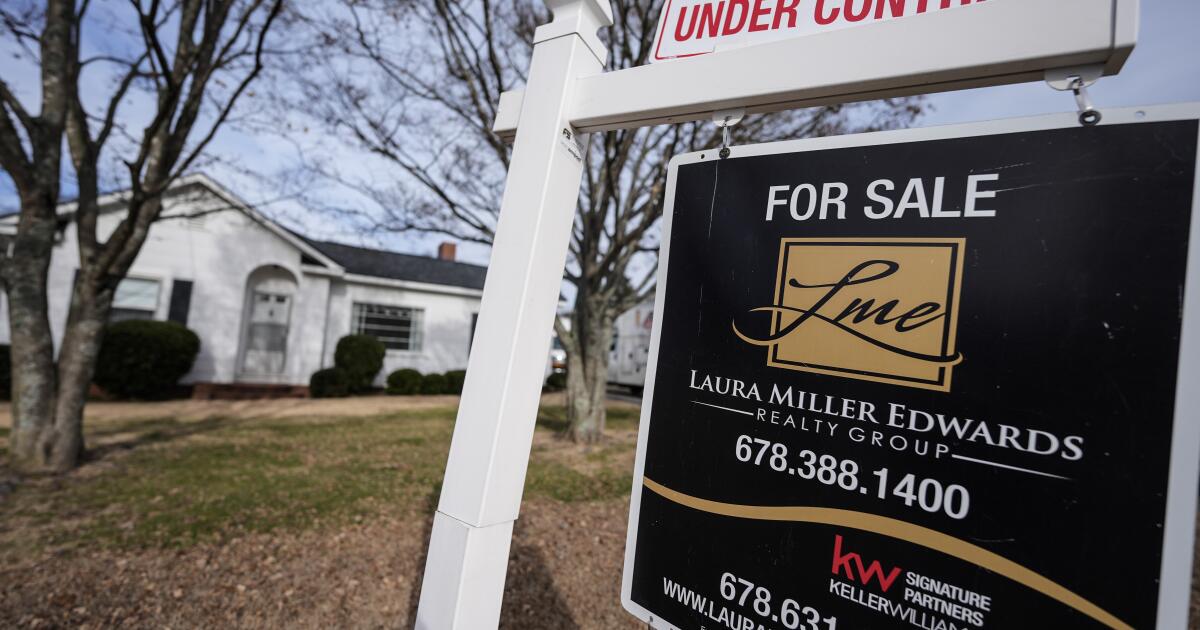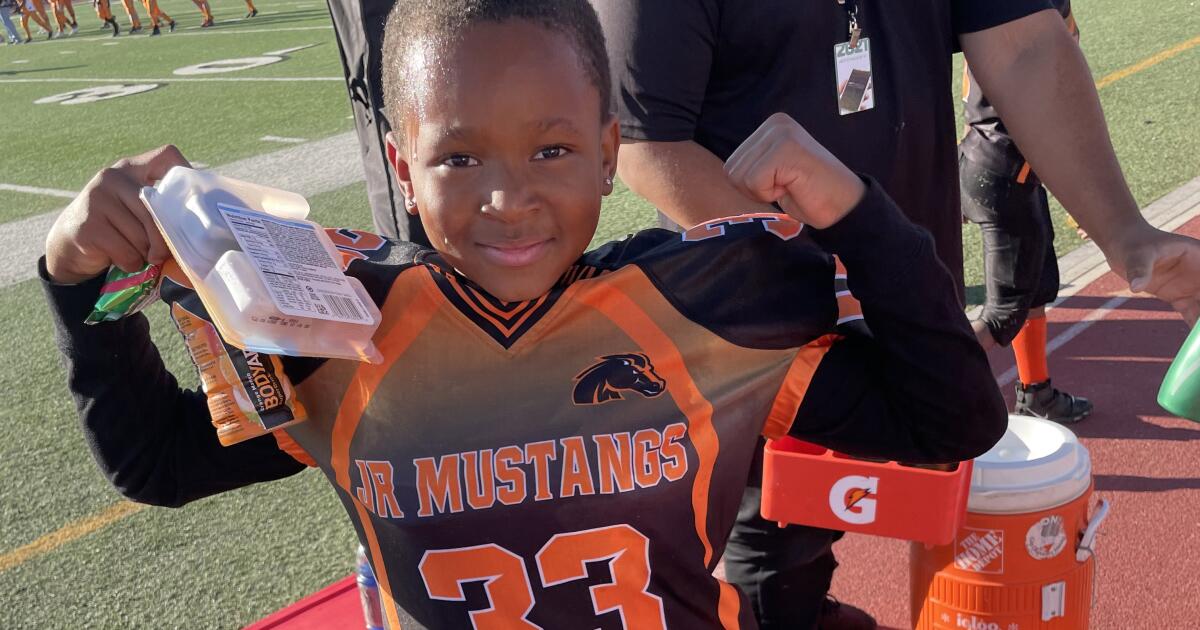A $5,000 reward is being offered to find out who killed a whooping crane in southwest Louisiana in January, federal authorities said.
The U.S. Fish and Wildlife Service, in a news release, announced the reward for information about the endangered bird, which was found dead Jan. 9 in Evangeline Parish along Besi Lane in Mamou, Louisiana. The necropsy determined that the juvenile bird was shot, causing a spinal fracture and internal bleeding.
ENDANGERED MEXICAN GRAY WOLVES STILL FACE THREAT DESPITE POPULATION GROWTH
Whooping cranes are endangered under the Migratory Bird Treaty Act of 1918 and the Endangered Species Act of 1973. It is illegal to harm the species in any way. The reward is for information that leads to the arrest or criminal conviction of those involved.
“It's frustrating,” Richard Dunn, curator at the Freeport McMoran Audubon Species Survival Center, told The Advocate. “It's bad enough to hear about a bird being preyed upon or hitting a power line. Something as simple as being shot is what kills us the most.”
A female whooping crane is photographed at the International Crane Foundation in Baraboo, Wisconsin. (Photo by Wild Horizons/Universal Images Group via Getty Images)
The Survival Center, based in New Orleans, has worked to improve the whooping crane population by raising and raising cranes to reintroduce them to the wild.
State officials and groups like the Audubon Nature Institute have done everything they can to reintroduce the species. As of 2023, there are 85 whooping cranes in Louisiana. Each bird reintroduced to the wild requires months of care, and nearly $33,000 is spent caring for each bird, Dunn said.
Whooping cranes are large-bodied white birds with red heads and black facial markings. They stand 5 feet tall and have a wingspan of 7 to 8 feet. In flight, whooping cranes display black wingtips and fully extended necks and legs, the latter reaching well beyond the tail.
Federal and state agencies began the Louisiana reintroduction in 2011, when 10 were released into White Lake to develop the flock; the first chick hatched in 2016. Since 2011, the state has seen 11 cranes die.
CLICK HERE TO GET THE FOX NEWS APP
Anyone with information about the January case is asked to call the U.S. Fish and Wildlife Service at 985-882-3756 or the Louisiana Department of Wildlife and Fisheries' Lake Charles Office at 337-491. 2575.
Callers can remain anonymous.

